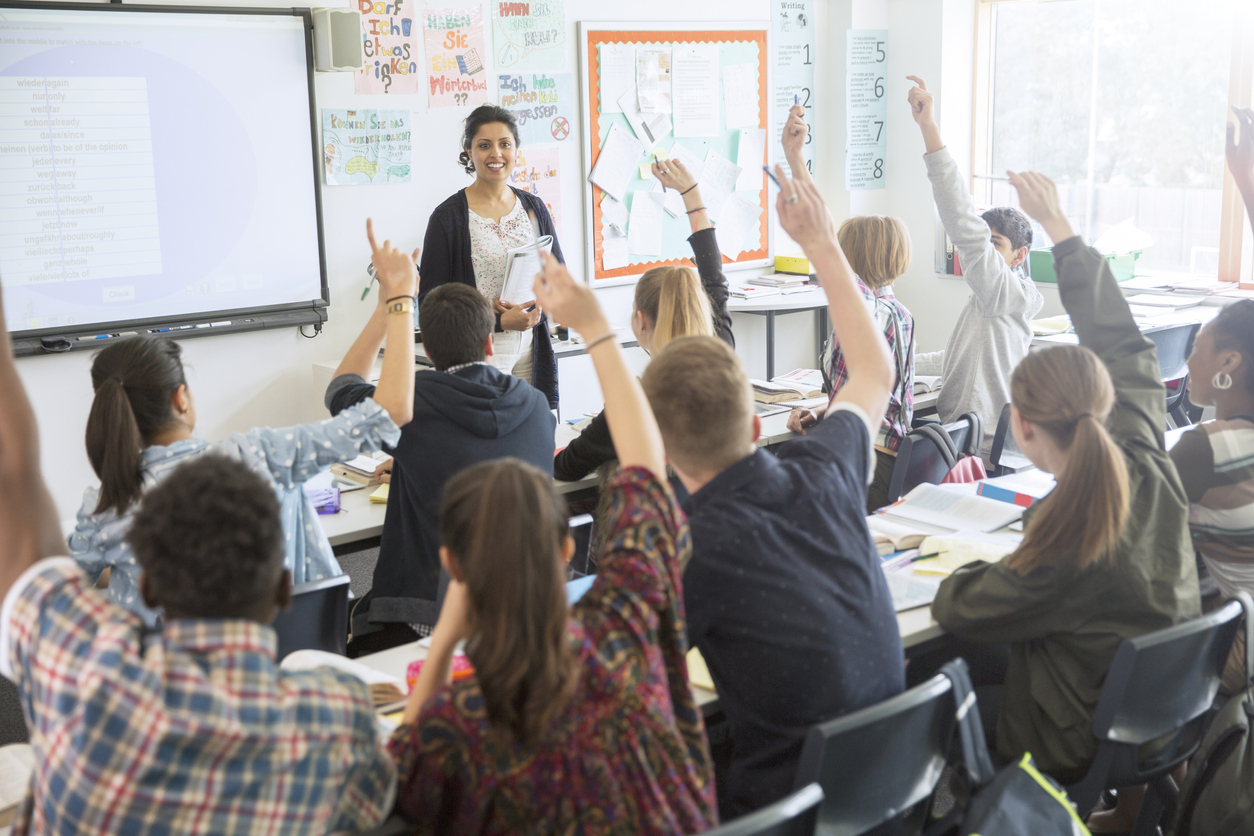Exploring the Various Training Approaches in Primary Science Education And Learning Today
The landscape of primary science education and learning is developing, with numerous training approaches getting importance in contemporary class. Inquiry-based understanding, hands-on experiments, and the integration of innovation are redefining exactly how instructors involve young minds. Additionally, collaborative approaches and distinguished guideline are being employed to accommodate the diverse demands of pupils, enhancing both engagement and understanding. As we analyze these methods, concerns occur regarding their effectiveness and the implications for future educational practices. What might these shifts in technique mean for the next generation of students?
Inquiry-Based Discovering
Inquiry-Based Learning (IBL) is a pedagogical approach that motivates students to discover scientific principles through wondering about, examination, and hands-on trial and error. This technique emphasizes the role of trainees as energetic participants in their learning, advertising essential thinking and analytical abilities. By involving with real-world inquiries, pupils end up being determined and interested, which enhances their understanding of scientific principles.
In IBL, instructors work as facilitators, directing students as they navigate their questions rather than supplying details straight. This student-centered method permits distinction, suiting different learning styles and rates. Students create skills in creating hypotheses, creating experiments, and analyzing information, which are important for clinical proficiency.
Additionally, IBL fosters cooperation among students, motivating them to share ideas and findings. This collective query advertises social abilities and a sense of area within the class. The process of inquiry motivates resilience, as trainees learn to accept failure as a tipping rock towards understanding.
Hands-On Experiments
Hands-on experiments are a vital component of effective scientific research education, matching the principles of inquiry-based learning. These experiments enable trainees to engage directly with clinical concepts, fostering a deeper understanding with experiential learning. By controling products and observing results, young learners can comprehend abstract concepts in concrete means.
Such tasks promote vital reasoning and problem-solving abilities, as trainees hypothesize end results, conduct experiments, and assess results. This process urges them to ask concerns, refine their understanding, and develop a clinical state of mind. In addition, hands-on experiments can be tailored to varied learning styles, ensuring that all trainees have the possibility to engage meaningfully with the material.
Additionally, hands-on experiments often urge cooperation among peers, advertising teamwork and interaction abilities. Operating in groups enables students to share ideas, talk about findings, and gain from each other, which improves their overall instructional experience.
Incorporating hands-on experiments right into the key science curriculum not only enriches the discovering setting however additionally cultivates a long-lasting passion in science. By proactively taking part in their education, pupils are more probable to establish an enthusiasm for scientific questions that prolongs past the class.

Modern Technology Assimilation
Incorporating modern technology into main science education has come to be increasingly vital in promoting trainee interaction and boosting discovering results. Using digital tools, such as interactive simulations, virtual laboratories, and instructional software program, supplies trainees with chances to explore clinical ideas in ingenious ways. These sources assist in a deeper understanding of complex subjects by permitting learners to visualize and adjust variables that would certainly be unwise in a conventional classroom setup.
Furthermore, innovation integration motivates personalized discovering experiences. Students can proceed at their own pace, reviewing tough principles through multimedia sources, which cater to different learning designs. This adaptability not just supports specific growth yet also grows a sense of freedom in learners.
Additionally, technology works as a bridge to real-world science, linking pupils with current study and professional payments. Access to online data sources and scientific journals widens trainees' viewpoints on scientific query and fosters vital assuming skills.
Collaborative Knowing
Collective discovering plays a vital function in main scientific research education and learning by fostering team effort and interaction abilities amongst students. This approach motivates learners to interact, share knowledge, and take part in problem-solving, which improves their understanding of clinical concepts. By getting involved in team tasks, trainees learn to articulate their ideas, listen to diverse perspectives, and bargain services, all of which are important skills in both real-world and scholastic contexts.

Research study suggests that collective knowing can bring about boosted inspiration and engagement in scientific research subjects, as students discover pleasure in common experiences (primary science tuition Singapore). Additionally, this look at here approach prepares trainees for future collective undertakings, equipping them with the abilities essential for reliable teamwork in greater education and learning and expert settings. Eventually, accepting collaborative learning in key science education can dramatically enrich the understanding experience and advertise a deeper understanding of scientific questions
Set Apart Guideline

Set apart instruction can show up in numerous ways, such as varying the content, processes, or products of understanding. For example, teachers may make use of tiered jobs that provide differing degrees of complexity, allowing pupils to function at their respective readiness degrees. Furthermore, flexible organizing techniques can promote collaboration among students with various abilities, cultivating peer learning.
Assessment plays an essential function in this technique, as it notifies direction and aids instructors comprehend each pupil's unique needs. Developmental assessments, such as observations and tests, can guide teachers in adjusting their strategies to enhance learning end results. primary science tuition Singapore. Ultimately, by implementing distinguished direction in primary science education, see this here instructors can cultivate a much more equitable and effective knowing setting, equipping all trainees to reach their full possibility in understanding scientific sensations
Final Thought
In summary, the varied teaching strategies in key scientific research education, including inquiry-based knowing, hands-on experiments, modern technology combination, collective knowing, and differentiated instruction, jointly contribute to a much more efficient discovering atmosphere. These techniques promote crucial reasoning, problem-solving abilities, and a much deeper understanding of scientific principles. By applying these methods, teachers can produce engaging and supportive class that go right here deal with the diverse needs of students, eventually fostering a lifelong passion in scientific research and boosting scholastic achievement.
Inquiry-Based Knowing (IBL) is an instructional technique that motivates students to explore scientific ideas through questioning, investigation, and hands-on testing.Joint knowing plays an important function in primary scientific research education and learning by promoting synergy and communication abilities amongst students.Study shows that joint knowing can lead to increased motivation and engagement in science subjects, as trainees find pleasure in common experiences.In cultivating an inclusive knowing environment, differentiated direction arises as an essential approach to suit the diverse requirements and capacities of pupils in primary science education and learning. Eventually, by carrying out set apart direction in primary science education and learning, instructors can grow an extra fair and efficient learning setting, empowering all trainees to reach their complete capacity in recognizing clinical phenomena.
Comments on “Affordable Primary Science Tuition Singapore for All Learning Needs”